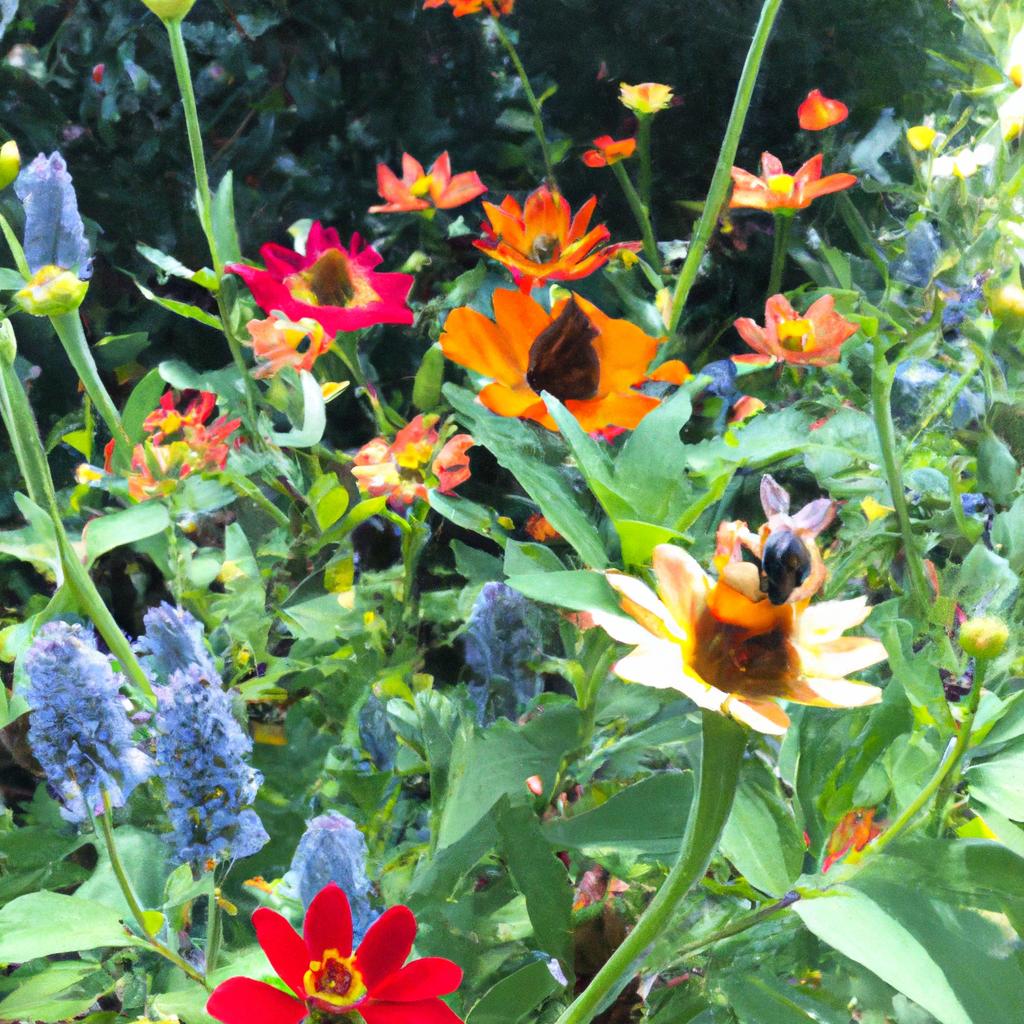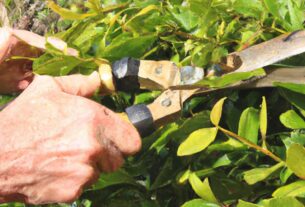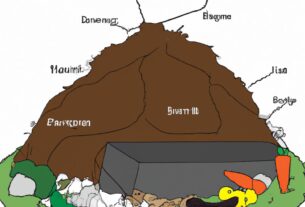Pollinator gardens are buzzing with life as they attract bees, butterflies, birds, and other insects. These gardens have gained popularity as people seek ways to protect the environment and save pollinators from extinction. In this article, we will explore the importance of pollinator gardens and their numerous benefits.
Attracting Pollinators
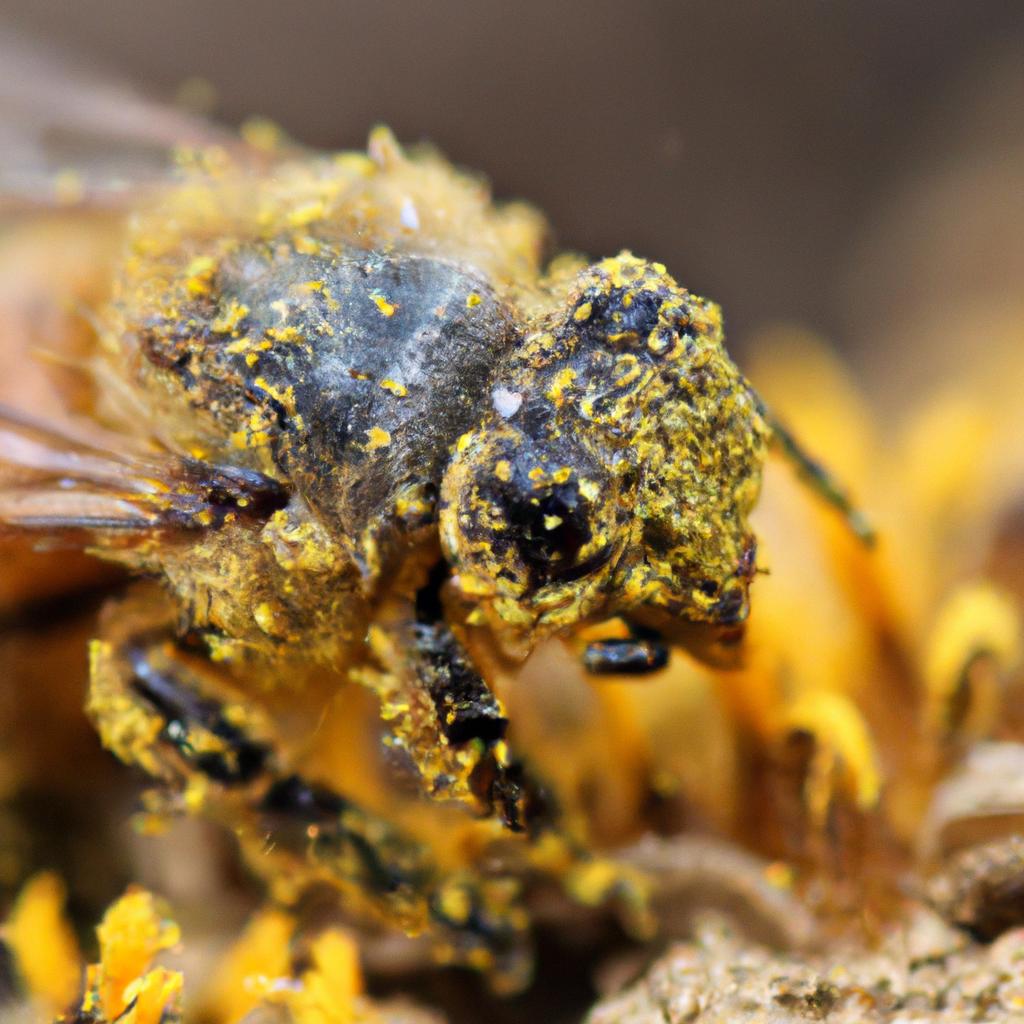
Image: A bee gathers pollen from a colorful flower in a garden.
Pollinator gardens are designed to support these essential creatures in their role of plant reproduction. By featuring a variety of flowers, shrubs, and trees, these gardens provide food and habitat for pollinators. Apart from their ecological significance, pollinator gardens also enhance the beauty of the environment and offer various other advantages.
The Benefits of Pollinator Gardens
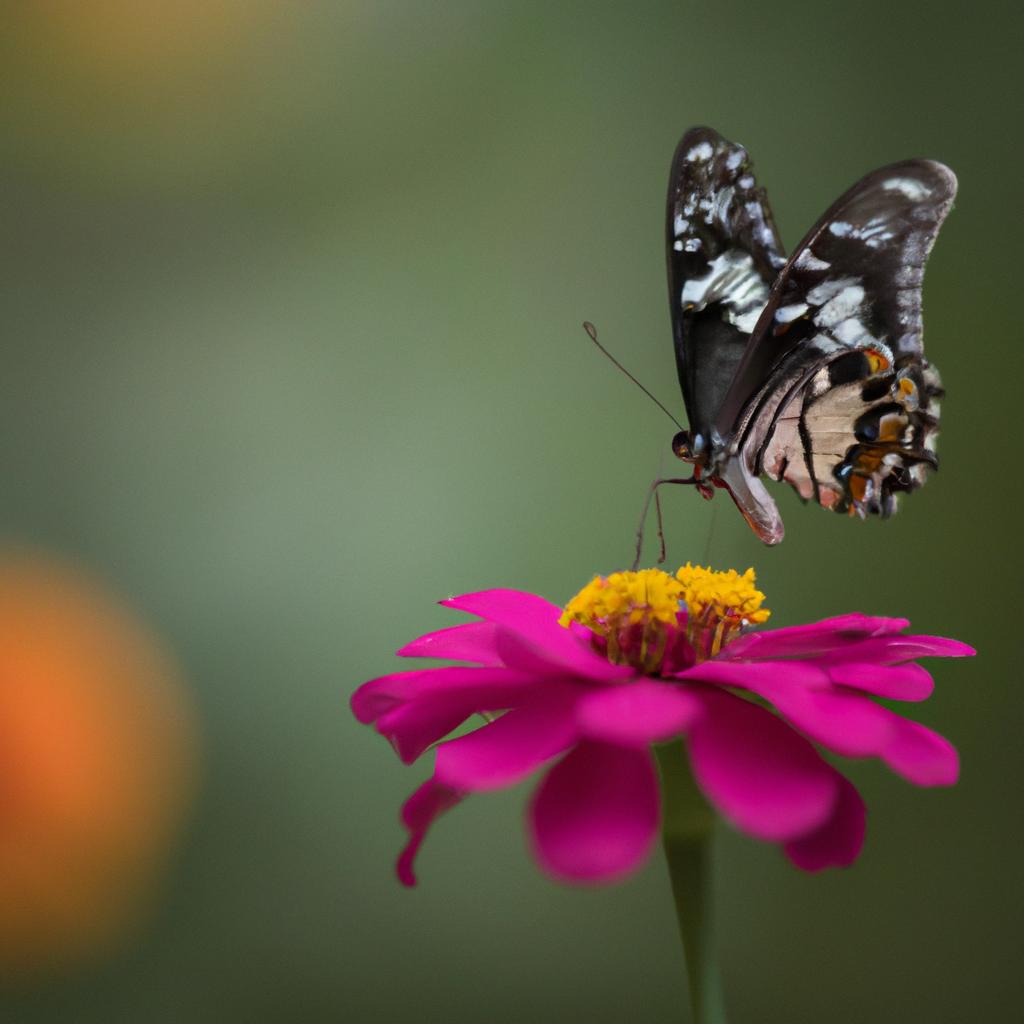
Image: A monarch butterfly rests on a purple flower in a pollinator garden.
Increase in Biodiversity
Pollinator gardens contribute to the increase of biodiversity in local ecosystems. By providing food and shelter, these gardens attract a wide range of species, including rare and endangered ones. This diversity fosters a sustainable ecosystem, vital for the survival of numerous plant and animal species.
Improvement in Crop Pollination
Pollinators play a crucial role in crop pollination. Without them, many crops would fail to produce fruit or seeds. By attracting pollinators to your garden, you are indirectly contributing to better crop yields and supporting local agriculture. This has a significant impact on local economies and food security.
Excited to know more about pollinator gardens? Keep reading!
Selection of Plants for Pollinator Gardens
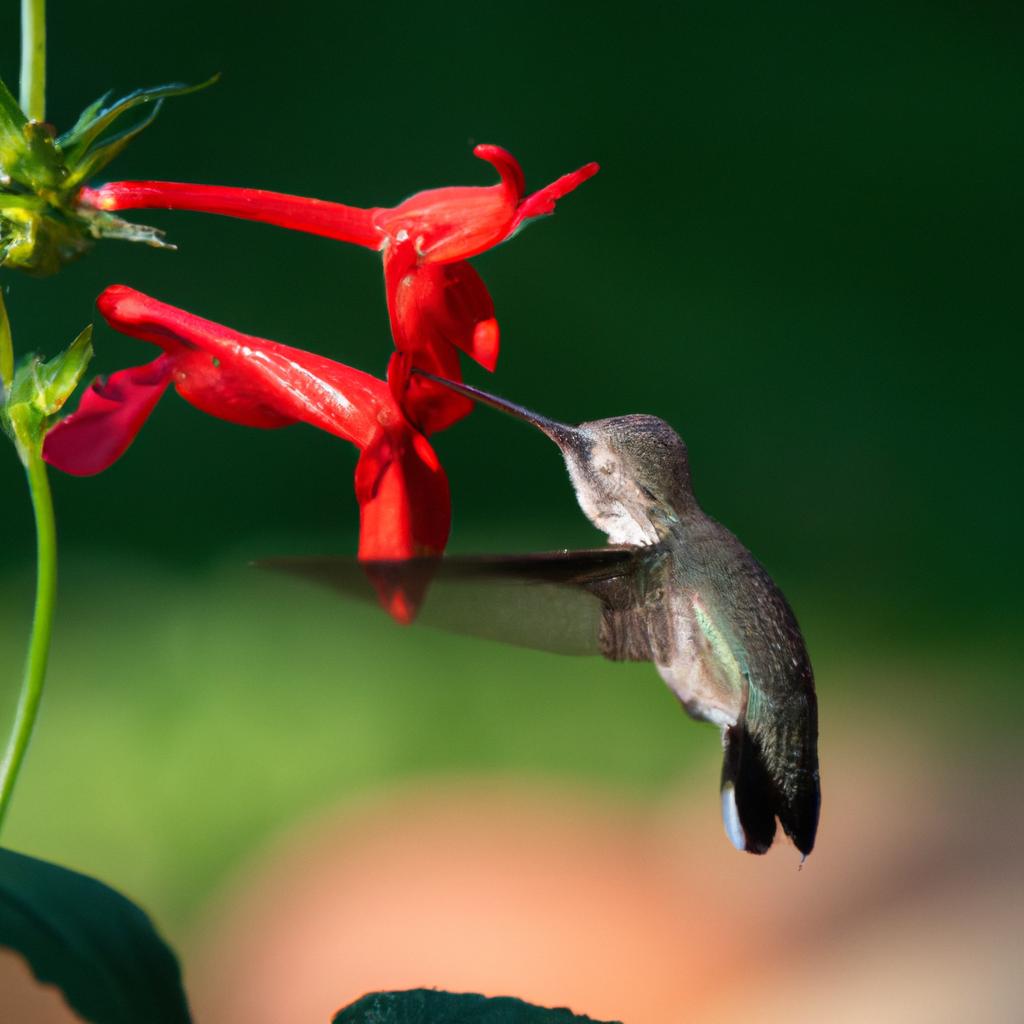
Image: A hummingbird feeds on nectar from a red flower in a pollinator garden.
When selecting plants for your pollinator garden, it’s crucial to consider the needs of the pollinators you want to attract. Here are some factors to keep in mind:
Native Plants
Native plants are vital for pollinator gardens as they have evolved to support local wildlife. These plants provide the most natural habitat and food sources for local pollinators. Additionally, they are more resilient and require less maintenance compared to non-native plants.
Flowers That Bloom at Different Times
To attract pollinators throughout the growing season, choose plants that bloom at different times. This ensures a consistent food source for pollinators throughout the year.
Plants That Provide Food for Pollinators
Choose plants that provide both nectar and pollen, as these are essential for the survival of pollinators. Consider including milkweed, coneflower, bee balm, and goldenrod in your garden to support these industrious creatures.
Ways to Attract Pollinators
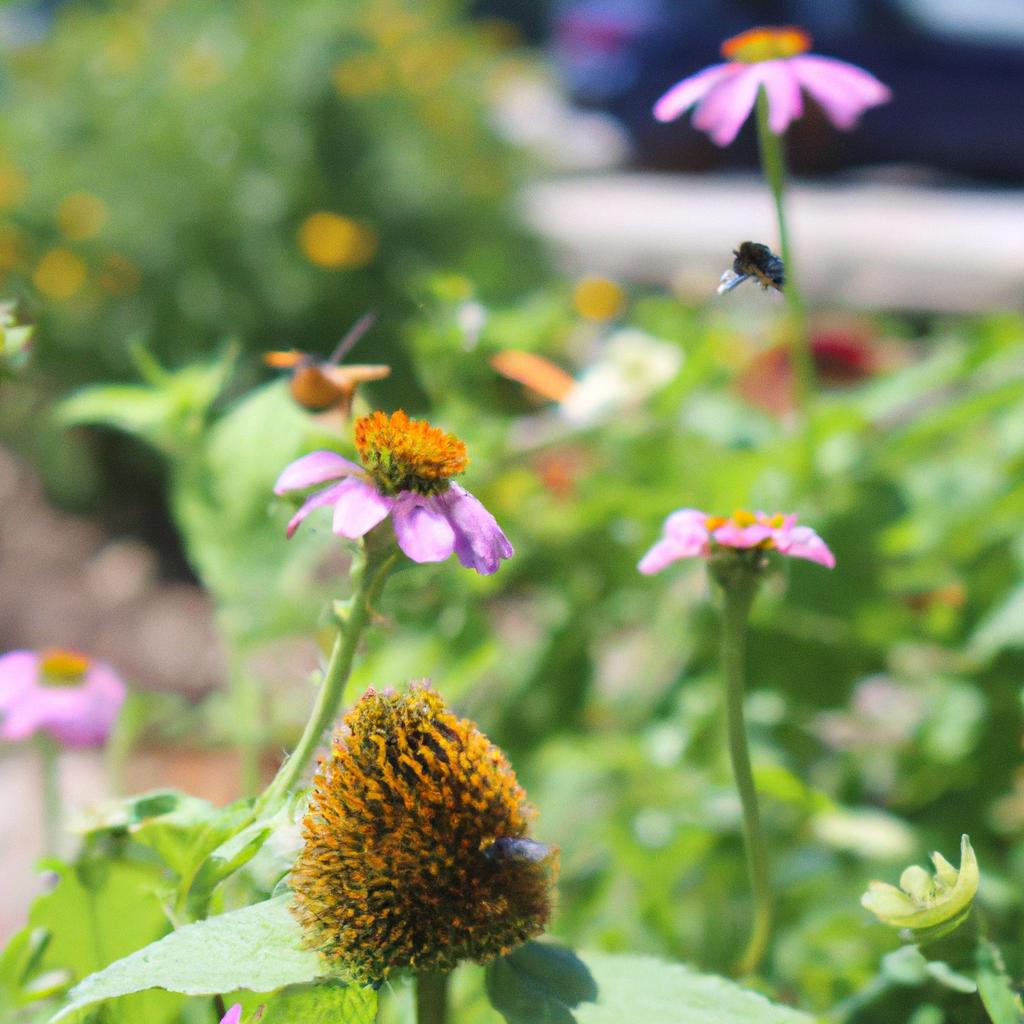
Image: A variety of pollinators gather on flowering plants in a garden.
Attracting pollinators to your garden involves more than just planting the right flowers. Here are some other ways to support these important creatures:
Providing Shelter
Pollinators need shelter to rest and hide from predators. Incorporate features like trees, shrubs, and nesting boxes into your garden to provide them with a safe haven.
Use of Water Sources
Just like any other living beings, pollinators require water to survive. Create water sources for them by incorporating birdbaths, shallow dishes of water, or even a damp patch of soil in your garden.
Avoidance of Pesticides
Pesticides can be harmful to pollinators. It’s essential to avoid using them in your garden. Instead, opt for natural pest control methods like companion planting or handpicking pests.
Maintenance of Pollinator Gardens
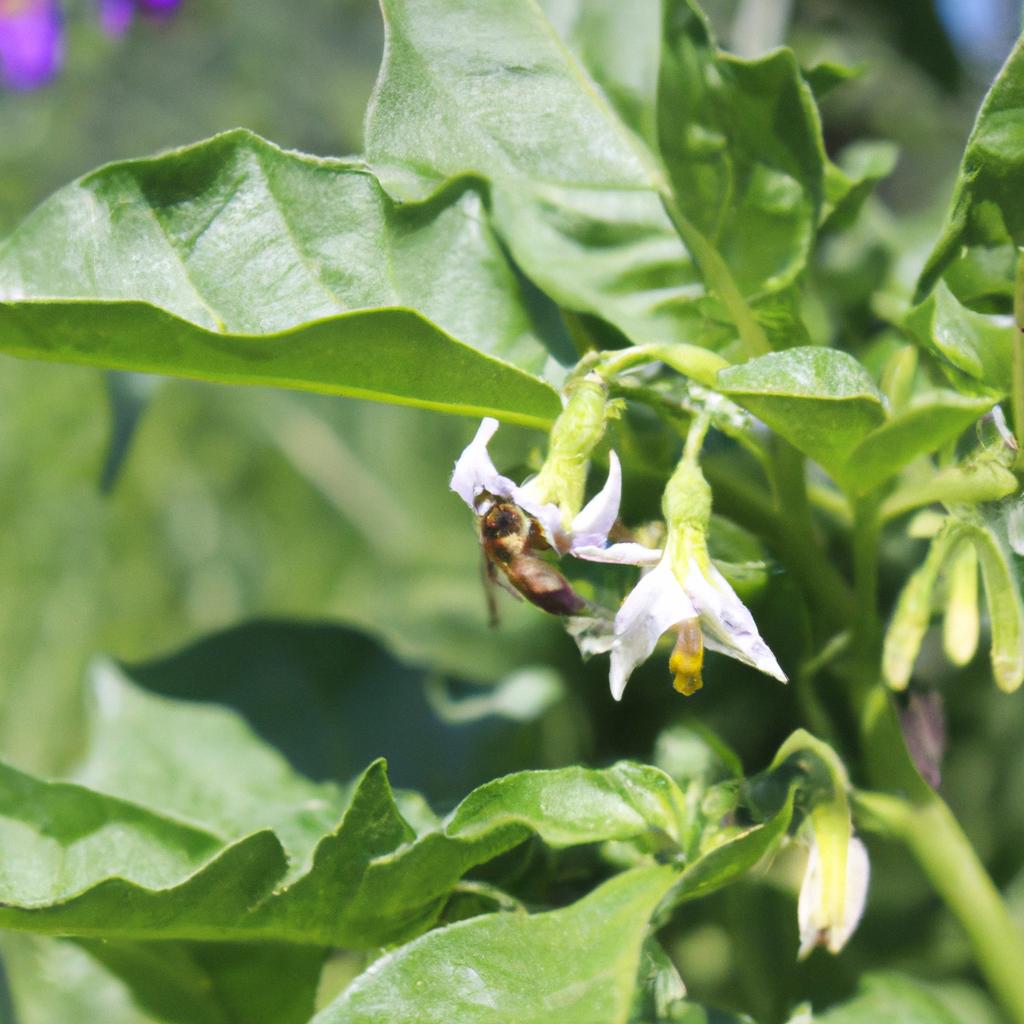
Image: A bee helps pollinate tomatoes in a vegetable garden filled with pollinator plants.
Once you have established a pollinator garden, proper maintenance is crucial to ensuring its continued attractiveness to pollinators. This includes regular watering and fertilization, pruning and weeding, and monitoring for pests and diseases.
Regular watering and fertilization keep your plants healthy and ensure blooms throughout the growing season. Pruning and weeding are vital for maintaining a neat and disease-free garden. Monitoring your garden for pests and diseases allows for early detection and prevention. It’s important to avoid using pesticides as they harm both pollinators and other beneficial insects.
In Conclusion
Pollinator gardens are an integral part of our ecosystem. They provide food and habitat for pollinators, supporting the reproduction of many plant species. By creating a pollinator garden in your backyard or community, you contribute to the environment and help protect pollinators from extinction.
At TooLacks, we advocate for everyone to consider starting a pollinator garden and taking steps to support the environment. Let’s make a difference together and create a sustainable and beautiful world.
